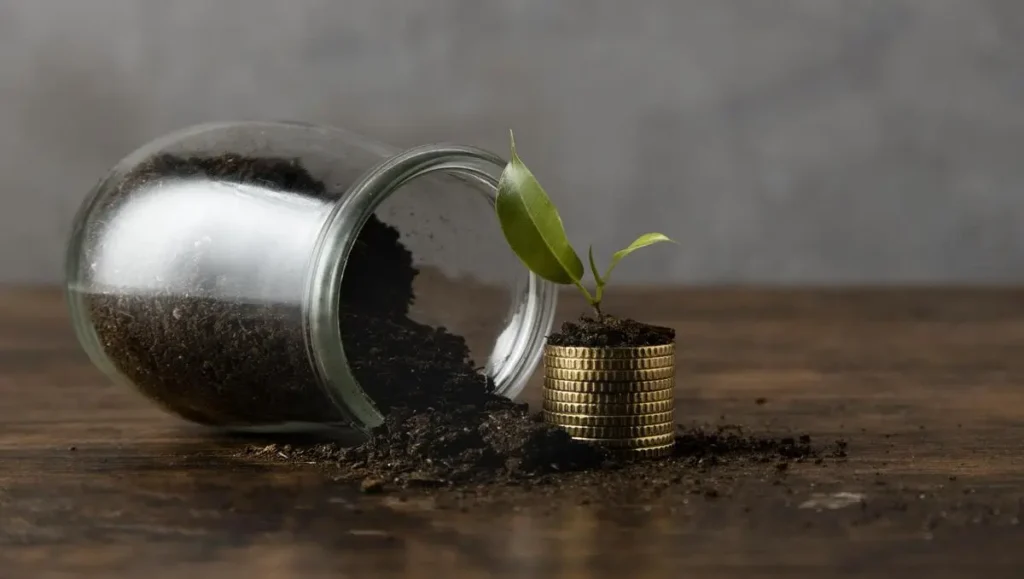Welcome to the world of Rot In Finance, where money doesn’t vanish overnight — it slowly slips away through tiny habits, lazy spending, and emotional buys. It’s that quiet drain you don’t notice until your wallet feels empty. Let’s talk about how to spot it and stop it before it eats your peace
What Exactly Is “Rot in Finance”?
Rot In finance isn’t about a scam or sudden financial loss. It’s that silent, gradual financial decay that creeps into your life through habits, emotions, and laziness.
Think about it — you earn decently, your expenses look “normal,” and yet, somehow, at the end of every month, there’s nothing left. You promise to save “next month,” but the story repeats. That’s financial rot — slow, invisible, and constant.
It’s like a leaking tap. A few drops don’t bother you at first. But over time, gallons of water go down the drain. The same happens with money — a coffee here, a food delivery there, an unused subscription, a late fee — they all add up.
The Slow Leaks That Cause the Rot
Let’s be honest — most of us don’t lose money in big chunks; we lose it bit by bit.
Imagine if you are a 45$ coffee order karte ho every other day, that’s ₹6,000 a month. Add a few Zomato deliveries, some random online shopping, and before you know it — you’ve spent enough to buy a flight ticket for a mini vacation.
One of my friends, Riya, used to say, “I don’t spend much; it’s just small stuff.” But when she tracked her spending for a month, she was shocked. Her “small stuff” had quietly eaten 30% of her salary. She called it her “money termites” — tiny but destructive.
That’s what rot looks like. It doesn’t scream; it just silently eats away.
Emotional Spending – The Hidden Fungus
Another part of rot finance is emotional spending. You know those days when you feel low and think, “Let me buy something to cheer up”? Been there, done that.
I remember one evening, I had a bad workday and ended up ordering food worth double my usual. Then I bought a shirt I didn’t need, just because it was “on sale.” It felt good for like five minutes, then came the guilt. That’s emotional rot — spending to fill emotional gaps.
And the worst part? We justify it. “I deserve this,” we say. Of course, we all deserve treats, but not if they slowly destroy our financial stability.

The Invisible Rot – Inflation and Idle Money
Here’s another sneaky one — keeping money idle.
Many people feel good seeing a big number in their savings account. But inflation is like slow rot — it eats your money’s value every year. The same 120$ that bought you something last year might not buy half of it next year.
I have felt it myself , when I left some money just sitting in my account for over a year, it technically stayed the same, but its purchasing power dropped. It’s like keeping bread out in the open — looks fine for a day, but slowly, mold grows.
That’s why smart investing (even small, safe ones) matters. It’s not about greed; it’s about keeping your money fresh and growing.
Procrastination – The Silent Killer
Financial rot also comes from delay — the “I’ll do it later” syndrome.
So many people say, “I’ll start saving when I earn more.” But trust me, that “more” never feels enough. The earlier you start, the healthier your money becomes.
It’s like dental care — you don’t wait for cavities to start brushing, right? You brush daily to prevent them. Money works the same way. A little financial hygiene daily can save you a lot of pain later.
Real Life Example – The Paycheck Trap
Let’s talk about something relatable.
A guy I know, Arjun, got his first job at 24. He was thrilled — first salary, first taste of independence. He started spending freely — gadgets, dinners, gifts for friends. After six months, he realized he hadn’t saved even a single rupee.
When I asked him why, he said, “I don’t know where it all went.”
That’s the thing — financial rot doesn’t announce itself. It hides behind justifications. “It’s just one party.” “It’s just one EMI.” “It’s just one app subscription.” But all those “just ones” build up over time.
How to Stop the Rot (Without Feeling Miserable)
Now, don’t worry — you don’t need to stop living. Financial balance isn’t about cutting all fun out of life. It’s about awareness.
Here are some small but powerful changes that can help:
- Track your expenses for one month. You’ll be shocked — and then more mindful.
- Automate savings. Treat savings like rent — non-negotiable.
- Cut the “lazy” leaks. Unused subscriptions, unnecessary delivery charges, random online sales — they’re silent killers.
- Reward yourself wisely. Spend on experiences or things that truly add value, not just impulsive “mood lifts.”
- Invest regularly, even tiny amounts. It keeps your money alive and fighting inflation.
The goal isn’t to become stingy; it’s to become smart.
Mindset Shift – From Surviving to Growing
Rot In finance starts with carelessness but ends with awareness. Once you see the leaks, you start plugging them. And slowly, your finances begin to breathe again.
One simple shift I made was asking myself before every purchase: “Will I still value this in a month?” If the answer was no, I skipped it.

Final Thoughts
Money is like food — if you take care of it, store it right, and check on it often, it stays healthy and helps you thrive. But if you ignore it, even the best income can rot.
Rot in finance doesn’t happen overnight. It’s a result of many small “doesn’t matter” moments. But the good thing? You can reverse it. All it takes is awareness, small consistent steps, and a little honesty with yourself.
Read more
- What Is Heter Iska Loan 2025
- Saxophone Financing Made Simple 2025
- Best Harley Financing Options in 2025
- Hometown Finance Best Guide 2025
- Kia Motor Finance
So next time you feel broke even after earning well, don’t just blame your job or luck. Check for the rot. It might not smell bad yet — but it’s there, waiting. And trust me, once you clean it up, your money — and mind — will feel so much lighter. rot in finance
Faq’s
1. What is rot in finance?
For me, it’s when money slowly disappears without notice. Not one big mistake — just small daily spends that pile up.
2. How do you know it’s happening?
When I started wondering, “Where did my salary go?” every month — that’s when I knew. Little leaks everywhere.
3. Does emotional spending cause it?
Yes, 100%. I’ve bought things just to feel better after a bad day. Later, I felt worse seeing my balance drop.
4. Biggest money mistake?
Saying “I’ll save later.” I did that for years. Trust me, later never comes. Start small now.
5. How to stop the rot?
I just got more mindful. Still enjoy life, just skip the waste. Small control, big difference.
6. Do small investments help?
Yes! I began tiny, but seeing my money grow — even a bit — felt amazing. It’s better than letting it rot.
